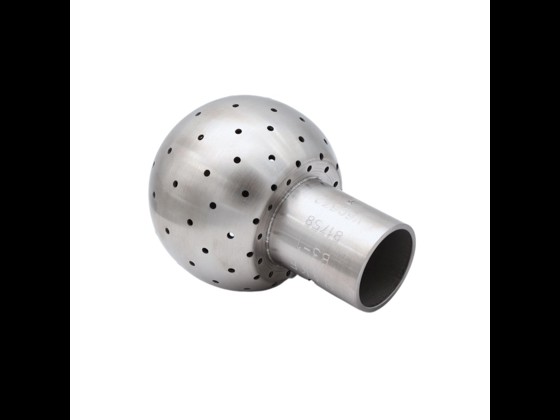
Spray ball
Made of stainless steel AISI 316, easy to install
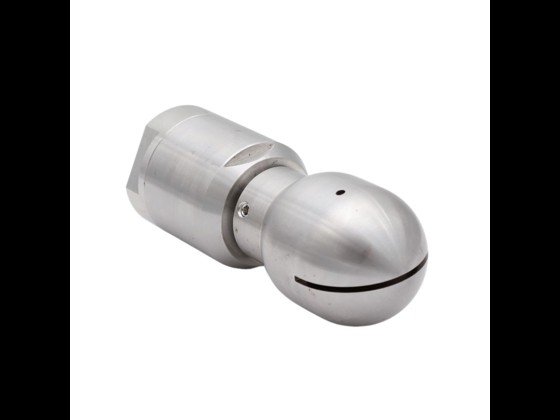
Rotor nozzle
Stainless steel, max. +90°C, tanks up to 5m in diam.
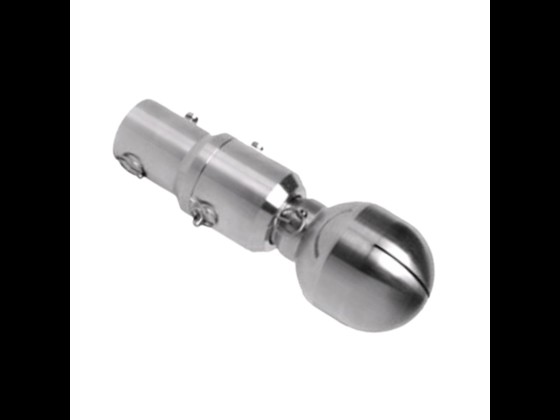
Rotor nozzle, dairy pipes
Stainless steel AISI 316, without thread, max. +90°C
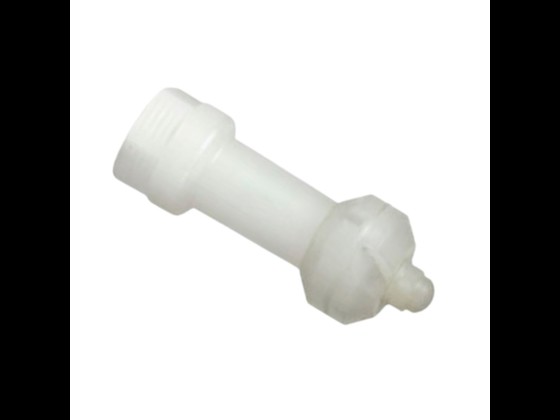
Rotor nozzle, PVDF
Made of PVDF, for smaller tanks, max. +90°C.
Spray balls & rotor nozzles – effective and thorough cleaning of tanks and containers
Spray balls and rotor nozzles are used for internal cleaning of tanks and containers in industrial plants where reliable and hygienic solutions are required.
We offer several models that can be used in both food and pharmaceutical production and can be adapted to specific cleaning requirements in different process environments. The components are made of acid-proof stainless steel and are available in variants that ensure optimal liquid distribution and cleaning efficiency. Both static and rotating versions are included in the range, so you can choose the solution that best suits your tank size, cleaning requirements and installation type.
What are spray balls and rotor nozzles?
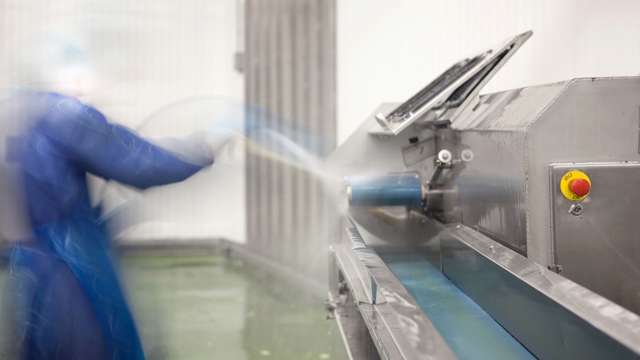
A spray ball is a stationary cleaning component in which liquid is sprayed out through fixed openings in several directions. It is typically used in containers with a clear geometry where no mechanical rotating effect is required. Rotor nozzles have a built-in moving part that is set in rotation by the pressure supplied. This rotation creates a dynamic spray pattern and ensures more intensive coverage of internal surfaces – particularly suitable for larger tanks and more complex shapes.
Differences between the most popular models
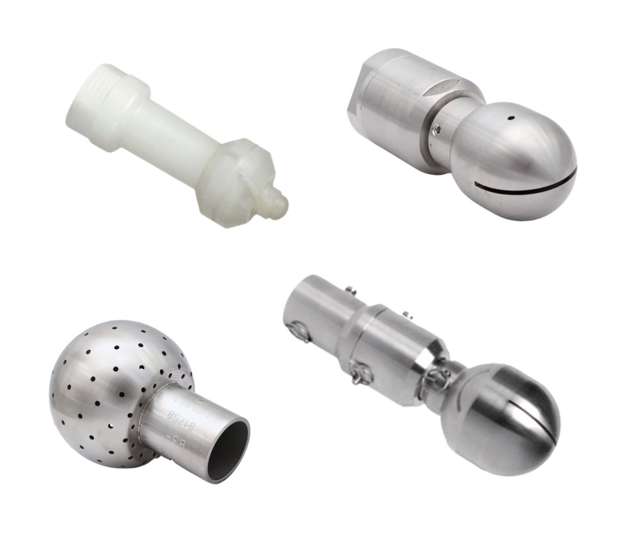
The spray ball – the reliable solution for smaller containers
The spray ball is an ideal choice for smaller cleaning tasks where water pressure is limited and flow is low. This type of nozzle is particularly suitable for cleaning tanks and containers with simple geometries where no high mechanical force is required. It operates at a constant pressure, distributing the liquid in several directions through small, strategically placed openings.
One of the main advantages of the spray ball is its simple and robust construction with no moving parts. This means that there is minimal risk of wear and failure, reducing the need for ongoing maintenance and spare parts. The spray ball is easy to install and requires only infrequent servicing, making it a reliable and cost-effective solution in production environments where uptime is critical.
Many companies in the food and pharmaceutical industries choose this solution for daily cleaning of smaller containers. It provides uniform and reliable coverage, ensuring that even frequent cleaning tasks can be carried out quickly and efficiently. However, it should be noted that the spray ball is not ideal for removing sticky media such as honey, where more mechanical force is required.
The rotor nozzle – the rotating force for demanding cleaning tasks
The rotor nozzle is designed for larger and more complex containers where high cleaning efficiency is required. It consists of a fixed part and an inner rotating unit with precisely designed slots. Rotation occurs when the liquid flows in and sets the nozzle in motion. This movement creates a circular spray pattern that ensures optimal coverage of internal surfaces – even in larger tanks.
The higher the water pressure and flow, the faster the rotation and the more powerful the cleaning effect. This makes the rotor nozzle ideal for tasks where both thoroughness and rinsing are crucial. The nozzle can be used at different pressure levels and temperatures up to 90 °C, making it particularly flexible for industrial cleaning applications.
A special model in the range is the rotor nozzle for mounting on dairy pipes. This version has no thread and is mounted using split brackets, making installation simple and safe in hygiene-sensitive environments. It is suitable for tanks with a diameter of up to 4 metres and can rotate freely in all positions thanks to two ball tracks. Made of stainless steel AISI 316 and approved for temperatures up to +90 °C. Available in several sizes and dimensions.
For smaller tanks, we also offer a compact rotor nozzle made of PVDF. This model is suitable for containers with a diameter of up to 1 metre and is also lubricated by the cleaning fluid during operation. It can be used in environments where chemical resistance and temperature tolerance up to +90 °C are required.
We offer rotor nozzles that can handle tank diameters up to 5 metres. They are available in several sizes and versions and can be adapted to specific needs in terms of connection type, material and cleaning area. With the rotor nozzle, you get a powerful and versatile solution that ensures effective cleaning even in the most demanding production environments.
How to choose the right solution
When choosing the optimal model, you should take into account the size and geometry of the tank and the type of product handled in the plant. In containers with simple surfaces and non-adhesive materials, the spray ball is often sufficient and advantageous due to its operating economy and simple construction. On the other hand, we recommend a rotor nozzle if there are higher demands on mechanical cleaning or if the container has a complex internal structure that requires better coverage. We are happy to advise on dimensioning and the correct model selection based on pressure conditions, liquid volume and the desired cleaning effect. In addition, we look at connections and material requirements to ensure that the solution fits both the existing installation and industry requirements.
Frequently asked questions

Why choose AISI 316 stainless steel for cleaning components?
AISI 316 stainless steel is a material that offers a long service life even under extremely demanding cleaning conditions. The material is ideal for industrial environments where hygiene is paramount – such as food and pharmaceutical processing plants.
What is the main advantage of a spray ball with no moving parts?
The main advantage of the spray ball with no moving parts is its low maintenance. The absence of complicated mechanical components reduces the risk of wear and repairs, resulting in an economical and reliable solution for cleaning smaller containers.
Is the spray ball suitable for cleaning sticky materials?
The spray ball is not suitable for sticky materials. However, the rotor nozzle is ideal for this purpose as it delivers a more powerful jet for better cleaning.
 da
da
 de
de
 en
en
 sv
sv